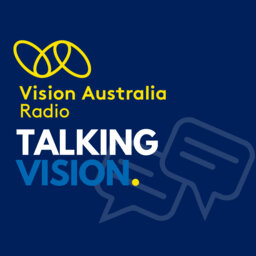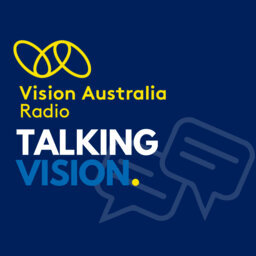Talking Vision 738 Week Beginning 22nd of July 2024
Tanya Thomas from the Frankston and District Basketball Association is on the show this week to tell us about their blind and low vision basketball program, taking place every Tuesday morning at the Frankston Basketball Centre.
You'll also hear from Maureen O'Reilly from the Vision Australia Library, who's here to tell us about a couple of events over the next few weeks for children to enjoy.
Finally this week, Frances joins the show with a Reader Recommended and we wrap up with some news and information.
In 1 playlist(s)
Talking Vision by Vision Australia Radio
Vision Australia Radiothon is on now. Donate via www.varadio.org and make a tax deductible donation …Social links
Follow podcast
Recent clips

Talking Vision 821 Week Beginning 2nd of March 2026
27:47

Talking Vision 820 Week Beginning 23rd of February 2026
27:55

Talking Vision 819 Week Beginning 16th of February 2026
28:59
 Talking Vision by Vision Australia Radio
Talking Vision by Vision Australia Radio